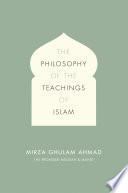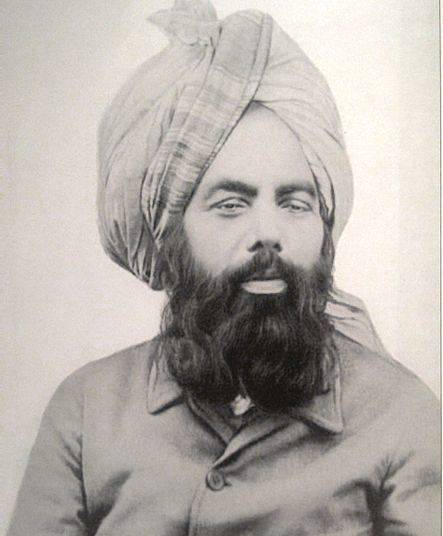Mirzā Ghulām Aḥmad was an Indian religious leader and the founder of the Ahmadiyya movement in Islam. He claimed to have been divinely appointed as the promised Messiah and Mahdī—which is the metaphorical second-coming of Jesus , in fulfillment of the Islamic prophecies regarding the end times, as well as the Mujaddid of the 14th Islamic century.Born to a family with aristocratic roots in Qadian, rural Punjab, Ahmad emerged as a writer and debater for Islam. When he was just over forty years of age, his father died and around that time he believed that God began to communicate with him. In 1889, he took a pledge of allegiance from forty of his supporters at Ludhiana and formed a community of followers upon what he claimed was divine instruction, stipulating ten conditions of initiation, an event that marks the establishment of the Ahmadiyya movement. The mission of the movement, according to him, was the reinstatement of the absolute oneness of God, the revival of Islam through the moral reformation of society along Islamic ideals, and the global propagation of Islam in its pristine form. As opposed to the Christian and mainstream Islamic view of Jesus , being alive in heaven to return towards the end of time, Ahmad asserted that he had in fact survived crucifixion and died a natural death. He traveled extensively across the Punjab preaching his religious ideas and rallied support by combining a reformist programme with his personal revelations which he claimed to receive from God, attracting thereby substantial following within his lifetime as well as considerable hostility particularly from the Muslim ulama. He is known to have engaged in numerous public debates and dialogues with Christian missionaries, Muslim scholars and Hindu revivalists.
Ahmad was a prolific author and wrote more than ninety books on various religious, theological and moral subjects between the publication of the first volume of Barahin-i-Ahmadiyya in 1880 and his death in May 1908. Many of his writings bear a polemical and apologetic tone in favour of Islam, seeking to establish its superiority as a religion through rational argumentation, often by articulating his own interpretations of Islamic teachings. He advocated a peaceful propagation of Islam and emphatically argued against the permissibility of military Jihad under circumstances prevailing in the present age. By the time of his death, he had gathered an estimated 400,000 followers, especially within the United Provinces, the Punjab and Sindh and had built a dynamic religious organisation with an executive body and its own printing press. After his death he was succeeded by his close companion Hakīm Noor-ud-Dīn who assumed the title of Khalīfatul Masīh .
Although Ahmad is revered by Ahmadi Muslims as the promised Messiah and Imām Mahdi, Muhammad nevertheless remains the central figure in Ahmadiyya Islam. Ahmad's claim to be a subordinate prophet within Islam has remained a central point of controversy between his followers and mainstream Muslims, who believe Muhammad to be the last prophet.
Wikipedia
✵
13. February 1835 – 26. May 1908

